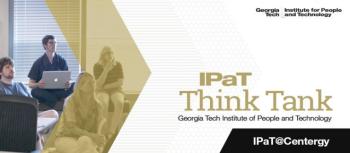IPaT Thursday Think Tank: Detecting and Measuring the Impact of Food Insecurity at Georgia Tech

In 2016, Georgia Tech collected preliminary data through an online survey of 771 students. The report found that 10% of Georgia Tech’s students responded being in need of food assistance and that 16% prioritized working at their job over academics and extracurricular activities. Georgia Tech’s actions to fill this gap include opening Klemis Kitchen in 2015, an on-campus food pantry that provides leftover food from the dining halls and Panera Bread as well as canned donations from other sources. However, in Spring 2019, only 100 students have self-identified and enrolled in the program; a far cry from the 10% of students estimated in the 2016 survey.
To ensure both the highest levels of health and academic performance of all GT students, we need to understand the effects of food insecurity/security on health and academic performance, identify effective methods of recognizing students who are food insecure, and develop interventions to that will increase food security among those students who are food insecure. The purpose of this preliminary study is to address the first two issues. Our specific aims are 1) to understand the impact of food security/insecurity on academic performance and 2) identify passive tools that can predict profiles of food insecure students that are specific to students within a semester period.
Moderators:
Jon Sanford, Professor, School of Industrial Design; Director, Center for Assistive Technology and Environmental Access (CATEA)
Thomas Ploetz, Associate Professor, School of Interactive Computing
Mehrab Bin Morshed, Ph.D. Student, Human-Centered Computing, Georgia Tech
Mahalia Hart, Graduate Student, Georgia Tech




